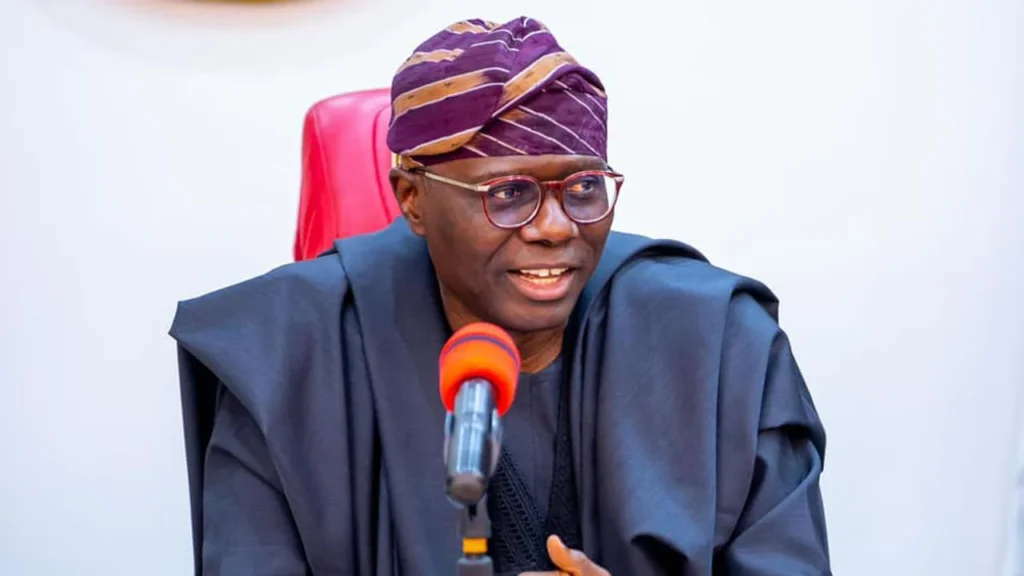Lagos State Governor, Babajide Sanwo-Olu, has revealed that Lagos-based startups raised over $1.2 billion in 2023, accounting for 75% of all startup investments in Nigeria. The announcement was made on Thursday during the unveiling of the Lagos Digital Service Platform at the Art of Technology Lagos 6.0 conference, themed “AI and the Lagos Digital Economy,” held in Victoria Island, Lagos.
Bridging Gaps with Technology
Speaking through the Deputy Governor, Dr. Obafemi Hamzat, Sanwo-Olu emphasized the state government’s commitment to modernity, inclusivity, and innovation under its Vision 2052 development plan. He highlighted that the Lagos Digital Service Platform is designed to bridge the gap between government and citizens, fostering trust and delivering impactful governance.
“The long-term development plan focuses on a thriving economy powered by innovation, modern infrastructure supporting a smart city vision, effective governance that adapts to the needs of its people, and a human-centric approach ensuring no one is left behind,” he said. “We are laying the foundation for a Lagos that is not only a tech hub but also a global example of sustainable urban development.”
Lagos as a Technology Leader in Africa
Sanwo-Olu reaffirmed Lagos’ position as both Nigeria’s economic nerve center and Africa’s leading technology hub. With over 60% of Nigeria’s tech startups based in Lagos and supported by accelerators, incubators, and global tech giants, the state continues to lead in fostering innovation.
The governor attributed the success of Lagos-based startups to deliberate policies and investments, creating an environment that supports innovation and positions Lagos as a global player in the technology value chain. He also highlighted the state’s focus on advanced technologies like artificial intelligence (AI) and blockchain to drive sustainable growth.
“Through the Enterprise Architecture Project, we are harmonizing data systems to prepare for AI-driven service delivery,” Sanwo-Olu explained, calling on stakeholders to collaborate. “Policymakers, educators, entrepreneurs, and innovators must work together as we navigate the future of artificial intelligence.”
Fostering Innovation Through Policy and Education
The Commissioner for Innovation, Science, and Technology, Mr. Tunbosun Alake, outlined the state government’s efforts to integrate AI into Lagos’ future. He noted that the Lagos State Innovation Bill is creating an enabling environment for AI research and development, incentivizing startups and researchers while embedding AI education in schools.
“Lagos, as the nation’s tech capital, is uniquely positioned to capture a significant share of the growth in Artificial Intelligence,” Alake said. “The state is collaborating with national and regional stakeholders, such as the Federal AI Collective, to develop ethical and regulatory frameworks for responsible AI deployment.”
He further highlighted the transformative potential of AI in critical sectors, including agriculture, healthcare, and transportation. “In agriculture, AI can enhance yields through predictive analytics. In healthcare, it improves diagnostics and personalized medicine, and in transportation, it optimizes systems with AI-driven insights,” Alake said.
Preparing for an AI-Driven Future
Alake stressed the importance of skilled AI engineers and data scientists in solving real-world problems. He noted that the state government is actively working to equip its youth with the tools and knowledge needed to drive innovation in AI and other emerging technologies.
A technology expert, Mr. Olugbolahan Olusanya, underscored the advantages Lagos stands to gain by embracing AI. He pointed out the large youth population in Lagos as a key asset in the state’s ambition to leverage fast-growing technologies. However, he urged the government to provide the necessary infrastructure to support AI adoption across all sectors.
A Vision for the Future
The Lagos Digital Service Platform, coupled with investments in AI and innovation, marks a significant step in the state’s vision of becoming a global technology hub. With strong policies, public-private partnerships, and a focus on sustainable urban development, Lagos is poised to lead Africa in the digital economy while addressing local challenges through innovative solutions.
